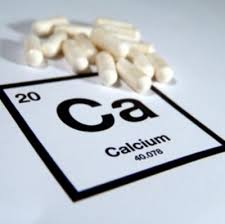 Calcium and vitamin D are commonly recommended for older women, but the usual dosages of these common supplements may send calcium excretion and blood levels too high for some women, according to a new study published online in Menopause, the journal of The North American Menopause Society.
Calcium and vitamin D are commonly recommended for older women, but the usual dosages of these common supplements may send calcium excretion and blood levels too high for some women, according to a new study published online in Menopause, the journal of The North American Menopause Society.
In a randomized, placebo-controlled trial of 163 older (ages 57 to 90) white women whose vitamin D levels were too low, women took 1,200 mg/day calcium citrate tablets along with various doses of vitamin D, ranging from 400 to 4,800 IU/day. (The trial was limited by ethnicity because different ethnic groups metabolize calcium and vitamin D differently.)
About 9% of the women developed excess levels of calcium in their blood (hypercalcemia), and 31% developed excess levels in their urine (hypercalciuria), even though they were taking normal doses of the supplements and did not have hyperparathyroidism, a condition in which the body makes too much calcium-regulating hormone. These excess blood and urine calcium levels may lead to kidney stones or other problems.
The good news in this study is that the investigators found a way to predict which women were likely to develop these excess levels. The risk of developing excess urine calcium was 15 times higher for women who started out with a 24-hour urine calcium level above 132 mg than for women with lower levels. And the risk was 20 times higher for women who started with levels above 180 mg than for women with lower levels. But every one-year increase in age reduced the risk by 10%.
“Even a modest calcium supplementation of 500 mg/day may be too high for some women,” note the authors, who recommend measuring blood and urine calcium levels before women start using the supplements and again within three months.
“I would recommend that women determine how much calcium they typically get through their food sources before taking a hefty calcium supplement. They may not need as much as they think,” says NAMS Executive Director Margery Gass, MD.
Source: John Christopher Gallagher, Lynette M. Smith, Vinod Yalamanchili. Incidence of hypercalciuria and hypercalcemia during vitamin D and calcium supplementation in older women. Menopause, 2014; 1 DOI: 10.1097/GME.0000000000000270












